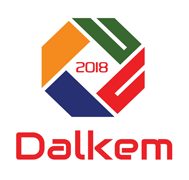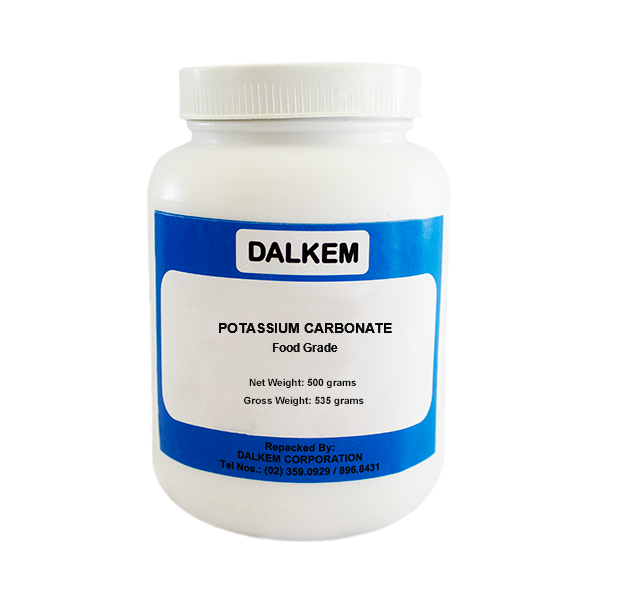Potassium Carbonate Food Grade 500grams
Potassium carbonate or pearl ash, is an alkaline with the chemical formula K2CO3, when used in food, it has the European food additive number E501.
Its main uses are in glass, ceramics compared with the applications in food.
** Properties
Other names Potash, Pearl ash, Carbonate of potash, K carbonate
CAS number 584-08-7
Chemical formula K2CO3 · nH2O, n = 0 Anhydrous, n = 1.5 Sesquihydrate
Molecular weight 138.20 (anhydrous)
pH of 10% K2CO3 11.6
Melting Point 1636°F (891°C)
** Appearance
1. Anhydrous: white, very hygroscopic powder, easy to absorb water in air and may agglomerate.
2. Hydrate: white, free-flowing, dustless, translucent crystals or granules.
USES
• Potassium carbonate is a water-soluble salt with its main applications in the production of glass, detergents (soaps), ceramics, fertilizers, agrochemicals, pharmaceuticals, food, feed, fire extinguisher, drying agent for solvents and etc.
• Potassium carbonate can be divided into heavy and light types if from density and solubility.
• The heavy type is mainly used in the fields of glass, ceramics, and fertilizers, while the light potassium carbonate is mainly applied in the fields of food, pharmaceuticals, and agrochemicals.
** Food
Its food grade is mainly used as an acidity regulator and its common food uses as follows:
Cocoa: it can be used in the manufacturing of alkalized cocoa to reduce the acidity of natural cocoa beans and darken cocoa powder.
Wine: it can also be used as a buffering agent to lower acidity during wine production.
Bakery: it was commonly used as a leavening agent to rise bread in baking but later replaced by sodium bicarbonate due to the bitter aftertaste. But can be used as a substitute of sodium bicarbonate in baked goods where low sodium content is desired.
Ramen Noodles: the main ingredient in Kansui, which is used to improve texture and color.
Marinades: as a buffering agent in marinades for meat.
Milk powder: an acidity regulator in milk and cream powders.
Raisins: as a drying agent for turning grapes into raisins.
** Ramen noodles
While enjoying the ramen, are you curious why ramen noodles can be stretched so long and not break after repeated stretching?
It is potassium carbonate, which interacts with protein and therefore hardens the texture of ramen noodles, makes it elastic and changes the color.
It raises the pH of dough and also helps shorten the cooking time of noodles.
Potassium carbonate and sodium carbonate are two main components in Kansui (lye water) to make noodles.
The proportion of the former is higher when used with wheat flour to make thin ramen noodles, which has a high protein content. While the percentage of latter is high when used to soften the noodles with low protein content.
** Ceramics
Potassium carbonate can be used as a raw material for ceramic frit in ceramic production. Its main purpose is to lower the frit melting temperature and increase the value of the frit expansion coefficient. It exists as K2O in the frits and commonly used in titanium dioxide frits for the appliance industry.
** Soap
It can be used to make soap softer than sodium based soaps.

